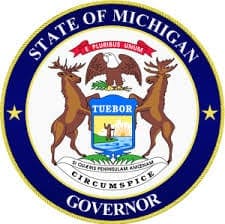EXECUTIVE ORDER No. 2020-21
Temporary requirement to suspend activities that are not necessary to sustain or protect life
 The novel coronavirus (COVID-19) is a respiratory disease that can result in serious illness or death. It is caused by a new strain of coronavirus not previously identified in humans and easily spread from person to person. Older adults and those with chronic health conditions are at particular risk, and there is an increased risk of rapid spread of COVID-19 among persons in close proximity to one another. There is currently no approved vaccine or antiviral treatment for this disease.
The novel coronavirus (COVID-19) is a respiratory disease that can result in serious illness or death. It is caused by a new strain of coronavirus not previously identified in humans and easily spread from person to person. Older adults and those with chronic health conditions are at particular risk, and there is an increased risk of rapid spread of COVID-19 among persons in close proximity to one another. There is currently no approved vaccine or antiviral treatment for this disease.
On March 10, 2020, the Michigan Department of Health and Human Services identified the first two presumptive-positive cases of COVID-19 in Michigan. On that same day, I issued Executive Order 2020-4. This order declared a state of emergency across the state of Michigan under section 1 of article 5 of the Michigan Constitution of 1963, the Emergency Management Act, 1976 PA 390, as amended, MCL 30.401-.421, and the Emergency Powers of the Governor Act of 1945, 1945 PA 302, as amended, MCL 10.31-.33.
The Emergency Management Act vests the governor with broad powers and duties to “cop[e] with dangers to this state or the people of this state presented by a disaster or emergency,” which the governor may implement through “executive orders, proclamations, and directives having the force and effect of law.” MCL 30.403(1)-(2). Similarly, the Emergency Powers of the Governor Act of 1945, provides that, after declaring a state of emergency, “the governor may promulgate reasonable orders, rules, and regulations as he or she considers necessary to protect life and property or to bring the emergency situation within the affected area under control.” MCL 10.31(1).
Click here to read the Michigan Executive Order.


